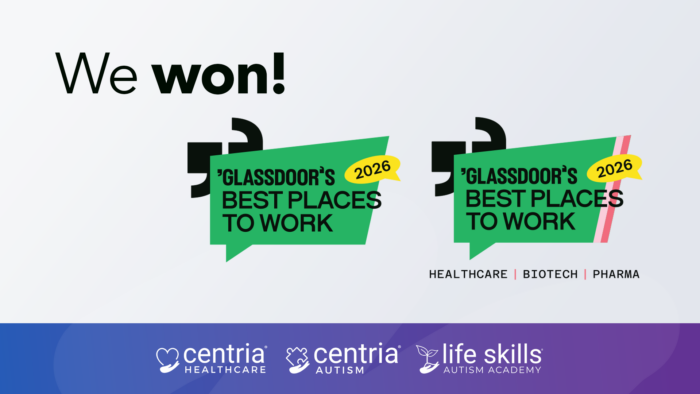Are you searching for a career that not only offers stability and growth but also genuinely enriches your life and the lives of others? Look no further than becoming a Board Certified Behavior Analyst (BCBA). Often, when we think of fulfilling careers, we envision roles that make a tangible difference. For BCBAs, this isn’t just a hopeful ideal—it’s a daily reality.
The field of Applied Behavior Analysis (ABA) is experiencing significant growth, leading to a high demand for qualified BCBAs. This means abundant job opportunities in various settings, including schools, clinics, hospitals, private practices, and in-home services, offering excellent job security and diverse career paths. However, the true appeal of this profession extends far beyond market trends.
The Transformative Impact: Witnessing Growth, Igniting Passion
At its core, being a BCBA is about helping individuals improve their lives. BCBAs primarily work with people, often those with autism spectrum disorder (ASD) and other developmental disabilities, to develop essential life skills, reduce interfering behaviors, and enhance their overall quality of life. Witnessing the tangible progress and positive transformations in clients’ abilities to communicate, learn, and engage with the world can be incredibly gratifying and provide a deep sense of purpose.
For many, the journey to becoming a BCBA begins with a profound personal experience. Imagine graduating college with a liberal arts degree, feeling adrift about your future, and then stumbling upon a special education classroom. That’s precisely what happened to me.
After college, I felt completely lost. I had a Sociology degree and a desire to be anywhere but home. Luckily, a special education classroom on a small island was hiring a classroom aide. It was there that I discovered my passion for ABA. A visiting BCBA supported the classroom, observing my client twice a month. Every visit was a lightbulb moment. The BCBA’s recommendations, explanations of basic principles, and data collection strategies made the science of human behavior click for me in a way nothing else ever had. I applied those recommendations and watched behaviors change, seeing my clients acquire new skills and reduce behaviors that interfered with their learning. Eventually, I left my island paradise to become a BCBA myself, overjoyed to have found a field that truly inspired me! This experience taught me how directly applying ABA principles and witnessing positive changes in clients can be a powerful catalyst for a deeply rewarding career.
A World of Opportunity: Your Skills, Anywhere
One of the most compelling aspects of a BCBA career is its incredible versatility and portability. A BCBA certification opens doors to a wide range of roles and settings, both domestically and internationally. Beyond direct therapy, BCBAs can work in academia, research, organizational behavior management, or even start their own private practices, offering a great deal of autonomy and control over their work.
For those with a wanderlust spirit, the BCBA credential is a passport to global opportunities. As someone who has lived in four states and three countries over two decades, I can attest to this freedom.
My career as a BCBA was forged across these many settings, including 11 years overseas. These international placements gave me the chance to disseminate the science I loved and help ensure access to quality support for families in underserved locations. No matter where I lived, my education, experience, and training were always useful and in demand. I discovered that I could truly work anywhere and wasn’t limited to one place. This illustrates how a BCBA career can support a dynamic lifestyle, providing valuable skills that are in demand globally and offering the chance to contribute to the dissemination of effective, evidence-based practices in diverse communities.
Continuous Growth and Collaborative Spirit
Behavior analysis is a dynamic field with ongoing research and the development of new interventions and techniques. BCBAs are at the forefront of this evolution, with continuous opportunities to stay updated, learn new skills, and refine their practice. Continuing education is a requirement for maintaining BCBA certification, ensuring professionals are always growing and evolving.
Furthermore, BCBAs work closely with individuals, their families, educators, and other professionals. Collaborating with colleagues and consulting with other providers is so important that it’s written into our ethics code! This collaborative environment fosters significant interpersonal growth, helping BCBAs develop patience, empathy, communication, problem-solving, and leadership skills—all of which are valuable in both professional and personal life.
While often working within a team, BCBAs typically have considerable autonomy in designing and implementing behavior intervention plans. This responsibility allows for creativity and innovation, contributing to a high degree of job satisfaction. As a BCBA, you become part of a community of similarly-minded individuals, and these relationships follow you throughout your career. Sometimes you’ll agree with your peers, and other times your opinions will differ greatly! But all share a common passion—a cognitive drive with an intense desire to serve and make a difference.
Is a BCBA Career Right for You?
The journey to becoming a BCBA requires rigorous training and commitment. However, the rewards—making a tangible difference in people’s lives, enjoying strong job prospects, seizing global opportunities, and experiencing continuous personal and professional growth—contribute to it being a deeply fulfilling career. If you’re seeking a profession that combines scientific rigor with profound human connection and boundless possibilities, a career as a BCBA might just be your calling.
About the Author
This blog was written by Amber Mander. Amber Mandler is an experienced professional in Applied Behavior Analysis (ABA) with a strong background in leadership and clinical services. She holds a Master of Science in Applied Behavior Analysis from Northeastern University (2010) and has completed PhD coursework in Organizational Leadership through The Chicago School of Professional Psychology. Amber has extensive international experience, having served as Qatar Project Director, Senior Consulting Specialist in the United Arab Emirates, and Clinical Director in Kuwait. She is a Board Certified Behavior Analyst and a State Licensed Behavior Analyst in Michigan and Massachusetts, and has presented at numerous conferences and workshops on topics related to ABA and organizational leadership. She currently serves as an Area Director of Clinical Services for Centria Autism in Michigan.






